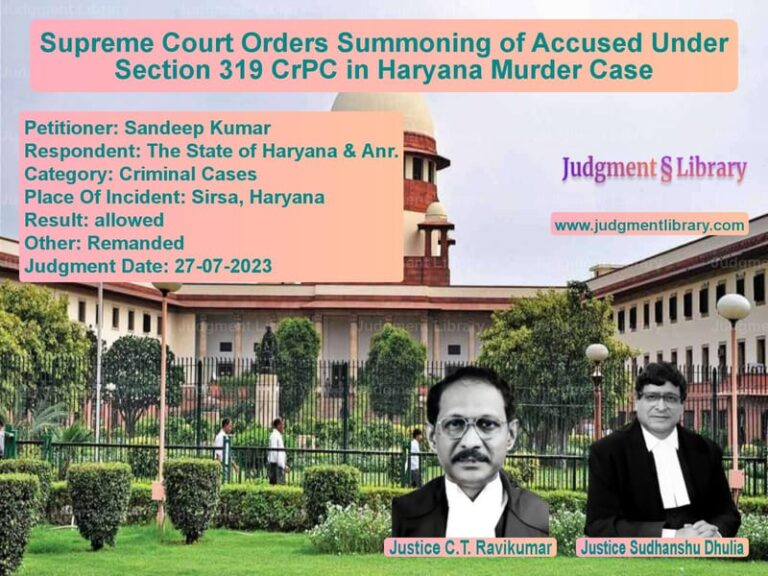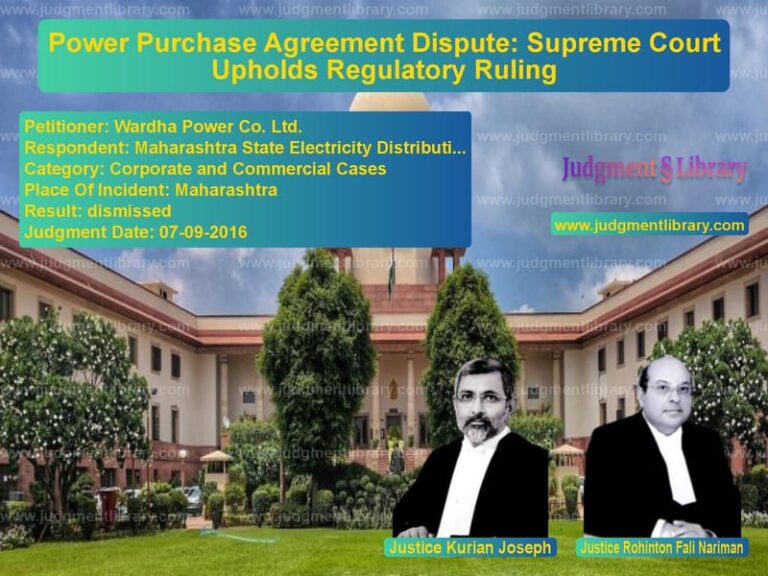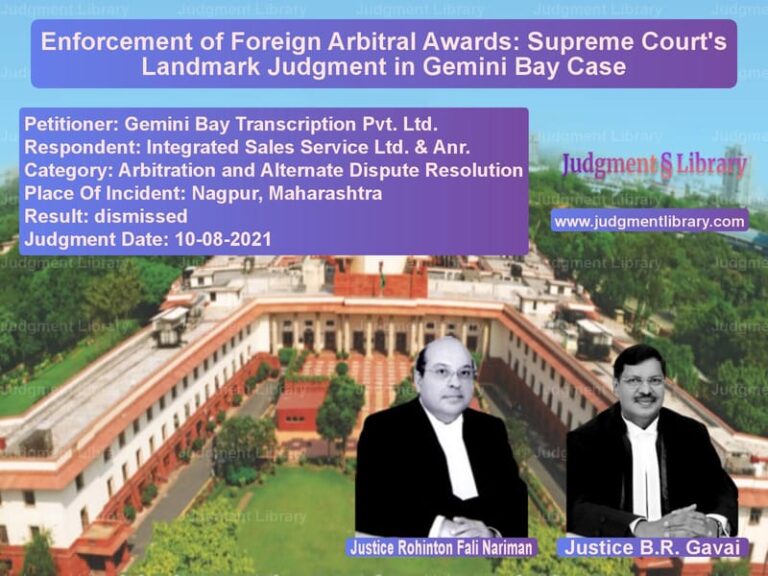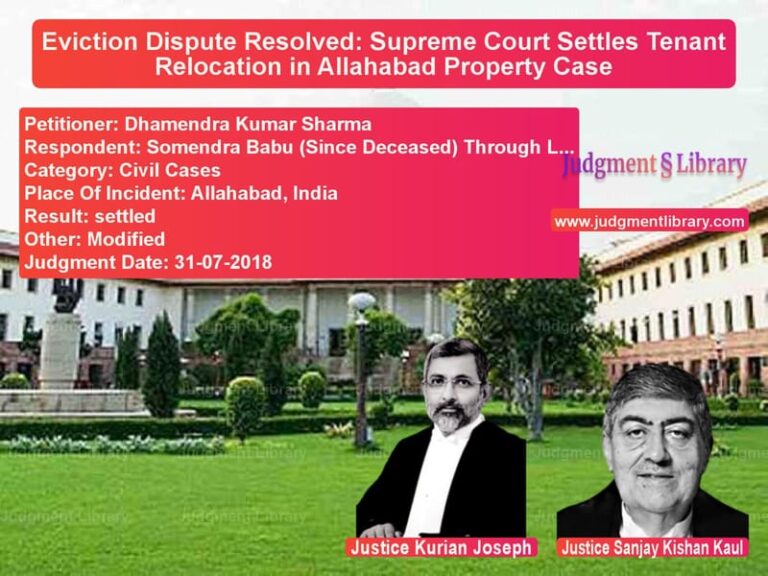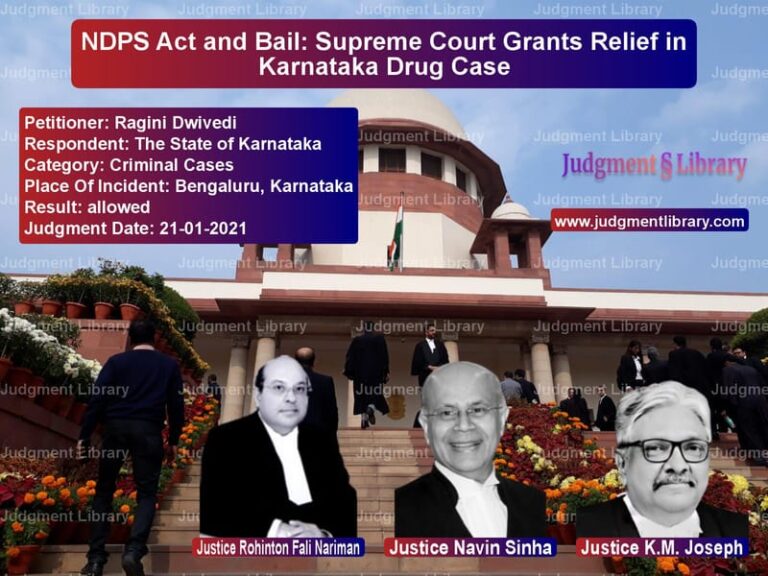Electricity Tariff Dispute for Educational Institutions: Supreme Court Verdict in Kerala State Electricity Board v. Sir Syed Institute
The case of Kerala State Electricity Board v. Principal Sir Syed Institute for Technical Studies & Ors. deals with a long-standing dispute over electricity tariffs for self-financing educational institutions (SFEIs). The Supreme Court examined whether SFEIs should be classified under the commercial tariff category while government-aided and government-run institutions were placed under a lower category.
The controversy began when the Kerala State Electricity Regulatory Commission issued a notification in 2007, which categorized SFEIs under the Low Tension VII(A) Commercial tariff, while government and government-aided institutions were classified under the Low Tension VI Non-Domestic tariff. This distinction led to a higher electricity tariff for SFEIs, prompting them to challenge the classification before the Kerala High Court.
Background of the Case
The dispute over electricity tariff classification is rooted in whether self-financing institutions should be treated as commercial entities or educational institutions with the same purpose as government-funded schools and colleges. The Kerala State Electricity Board (KSEB) justified the classification on the basis that SFEIs operate without government aid and generate their own revenue through tuition fees and other sources. The SFEIs, on the other hand, argued that they provide education just like government institutions and should not be burdened with higher electricity costs.
Legal Issues Raised
- Whether SFEIs can be classified under the commercial tariff category.
- Whether the differentiation in tariff rates violates Section 62(3) of the Electricity Act, 2003, which prohibits undue preference among consumers.
- Whether self-financing institutions should be treated differently from government-aided institutions in terms of electricity charges.
- Whether the classification was arbitrary and without any basis in law.
Arguments by the Petitioner (Kerala State Electricity Board)
The Kerala State Electricity Board argued that self-financing institutions operate on a different financial model compared to government institutions. They contended:
“SFEIs charge higher tuition fees, provide air-conditioning, and generate revenue through various means. Their financial capability is different from that of government institutions, which are fully dependent on public funds.”
The Board also pointed out that government institutions serve a broader social function and are subsidized to ensure access to education for economically weaker sections of society.
Arguments by the Respondent (Self-Financing Educational Institutions)
The SFEIs challenged the classification, arguing that it was discriminatory. They contended:
“Educational institutions, irrespective of whether they receive government funding, serve the same purpose of imparting education. The imposition of commercial tariffs unfairly penalizes self-financing institutions.”
They further argued that Section 62(3) of the Electricity Act, 2003, does not allow discrimination based on the financial model of an institution but only based on factors such as voltage level, time of consumption, and geographical location.
Supreme Court’s Analysis
The Supreme Court carefully examined the Electricity Act, 2003, and relevant precedents. The Court noted:
“The purpose of an institution is a key factor in determining whether it should be treated as a commercial entity for tariff purposes. Government institutions are publicly funded and serve a different social function, whereas SFEIs operate independently and generate revenue through fees and other sources.”
The Court observed that SFEIs had not objected to the proposed tariff changes during the consultation process before the Kerala State Electricity Regulatory Commission. The Court also ruled that the differentiation in tariff was justified, as the operational costs and revenue models of government and self-financing institutions were fundamentally different.
Key Observations by the Supreme Court
- The classification of SFEIs under the commercial tariff was not arbitrary but based on a reasonable distinction.
- Government and aided institutions are funded by taxpayers and operate under different financial constraints.
- SFEIs, while providing education, function more like private entities and generate revenue from students.
- Section 62(3) of the Electricity Act allows differentiation in tariffs based on purpose, and the classification did not violate this provision.
Final Verdict
The Supreme Court ruled in favor of the Kerala State Electricity Board and set aside the High Court’s ruling. The Court held that self-financing educational institutions could be classified under the commercial tariff category due to their independent revenue-generation model. The decision reaffirmed that differential electricity tariffs based on financial models and revenue sources are legally permissible.
Implications of the Judgment
The ruling has significant implications for educational institutions across India. Self-financing institutions may now be subject to commercial electricity tariffs in other states as well. This decision clarifies that tariff differentiation is allowed as long as it is based on a rational classification and does not constitute undue preference.
Conclusion
The case of Kerala State Electricity Board v. Sir Syed Institute highlights the legal complexities surrounding electricity tariff classification for educational institutions. The Supreme Court’s decision provides a legal basis for treating self-financing institutions differently from government-funded ones, reinforcing the principle that revenue-generating entities can be subjected to higher tariffs. The ruling serves as a precedent for future cases involving tariff classifications and consumer rights in the power sector.
Petitioner Name: Kerala State Electricity Board.Respondent Name: Principal Sir Syed Institute for Technical Studies & Ors..Judgment By: Justice Deepak Gupta, Justice Aniruddha Bose.Place Of Incident: Kerala.Judgment Date: 20-02-2020.
Don’t miss out on the full details! Download the complete judgment in PDF format below and gain valuable insights instantly!
Download Judgment: Kerala State Electri vs Principal Sir Syed I Supreme Court of India Judgment Dated 20-02-2020.pdf
Direct Downlaod Judgment: Direct downlaod this Judgment
See all petitions in Consumer Rights
See all petitions in Other Cases
See all petitions in Judgment by Deepak Gupta
See all petitions in Judgment by Aniruddha Bose
See all petitions in allowed
See all petitions in supreme court of India judgments February 2020
See all petitions in 2020 judgments
See all posts in Civil Cases Category
See all allowed petitions in Civil Cases Category
See all Dismissed petitions in Civil Cases Category
See all partially allowed petitions in Civil Cases Category


